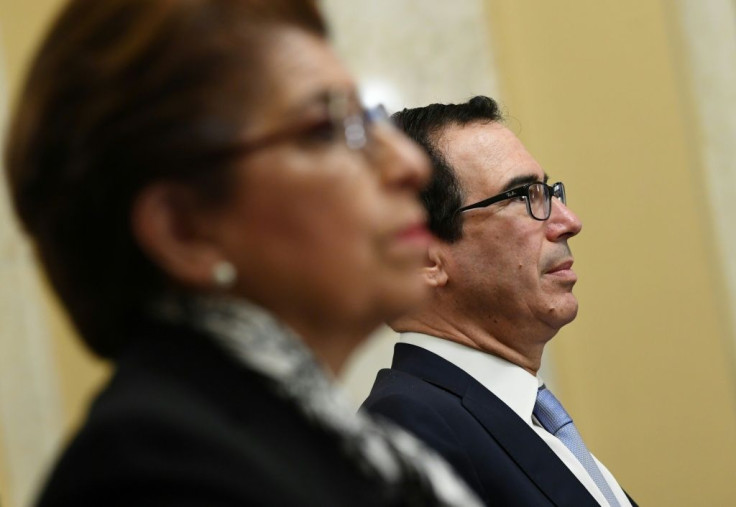US Economic Recovery 'Is Underway,' Mnuchin Says

The United States is set for an economic comeback following devastating shutdowns to stop the spread of the coronavirus, Treasury Secretary Steven Mnuchin said Wednesday.
"America's economy has begun to rebound, and our recovery is underway," Mnuchin said in testimony to the Senate Small Business and Entrepreneurship Committee.
He pointed to last week's Labor Department report showing the economy added 2.5 million jobs and the unemployment rate declined to 13.3 percent -- nonetheless a sky-high figure reminiscent of the Great Depression 90 years ago.
He also cited statistics from the US Chamber of Commerce showing 79 percent of small businesses have begun reopening, and half of those that remain closed plan to do so soon.
Mnuchin credited much of the progress to the $2.2 trillion CARES Act that Congress passed in late March as the lockdowns began, which offered loans and grants to small businesses to get them to keep their staff, as well as direct cash payments to Americans.
"This economic positioning is the direct result of the Trump Administration and Congress working together to pass bipartisan legislation to provide necessary liquidity to workers and markets," Mnuchin said.
However, the secretary said further spending is needed given the depth of the downturn, telling senators, "I definitely think we are going to need another bipartisan plan."
His comments are in line with calls for additional stimulus from Federal Reserve Chair Jerome Powell, who has presided over the central bank's moves to offer trillions of dollars in liquidity to keep markets from seizing up.
The Fed will later in the day finish its first two-day meeting since states began to ease coronavirus shutdown restrictions, where its policy-setting committee is expected to keep the key rate at zero.
© Copyright AFP {{Year}}. All rights reserved.





















